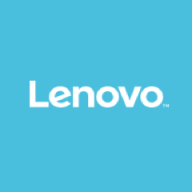

Dell PowerEdge Rack Servers and Lenovo Flex System compete in the enterprise server market, where Dell's strong remote management and virtualization capabilities often give it an advantage in environments requiring extensive scalability and performance.
Features: Dell PowerEdge Rack Servers offer remote management capabilities through the iDRAC interface, notable reliability, and support for virtualization making it suitable for high-performance workloads. It includes robust security features and is designed for easy upgrades. Lenovo Flex System is recognized for stability and ease of use, particularly during deployments. It provides a 14-blade server configuration allowing for high resource consumption without immediate scaling, and effectively supports high-performance networking.
Room for Improvement: Dell PowerEdge Rack Servers could benefit from better power efficiency, clearer documentation, and improved pricing stability. Users also suggest enhancements in firmware updates and faster support responses. Lenovo Flex System would improve with better integration with other platforms and more comprehensive managed services support, with users noting less frequent updates and support compared to competitors.
Ease of Deployment and Customer Service: Dell PowerEdge Rack Servers are commonly used in on-premises, private, and hybrid cloud environments, generally receiving positive feedback on customer service despite some concerns about support response times. Lenovo Flex System is mainly deployed on-premises and is viewed as having satisfactory but occasionally limited support, suggesting a need for quicker and more comprehensive customer service.
Pricing and ROI: Dell PowerEdge Rack Servers are more expensive but offer clear licensing and long-term stability, with significant ROI due to their reliable performance. They compete against high-end solutions like HPE but require a greater initial investment. Lenovo Flex System is appreciated for its cost-effectiveness and reasonable pricing structure, with users seeing balanced ROI, particularly benefiting from its scalable blade server design.


Dell PowerEdge Rack Servers are designed to optimize performance and efficiency in a data center environment, supporting various applications. Dell stands as the leading vendor in accelerated servers for AI, commanding a 33.8% revenue share. Based on user reviews, Dell PowerEdge Rack Servers supporting tasks from basic web hosting to more demanding applications like data analytics and virtualization. They are engineered to offer high performance, reliability, and scalability. With a focus on automation and integrated security, these servers simplify operations and protect against threats, making them a smart choice for businesses of all sizes.
Dell PowerEdge Rack Servers are a robust, secure, and scalable solution that can meet the diverse needs of businesses, backed by comprehensive support. Benefits to look for in reviews include performance, reliability, scalability, and customer support.
Dell PowerEdge Rack Servers key features include:
In terms of implementation, Dell PowerEdge Rack Servers are used across various industries, from small businesses to large enterprises. They serve as the foundation for IT infrastructure, powering critical applications in healthcare, finance, education, and more. The adaptability of these servers means they can be tailored to specific industry needs, from handling large datasets in research institutions to supporting high-transaction databases in financial services.
Flex System is Lenovo’s proven, 2nd generation blade, that efficiently runs your infrastructure applications with up to 80% better density than standard rack server deployments.
We monitor all Blade Servers reviews to prevent fraudulent reviews and keep review quality high. We do not post reviews by company employees or direct competitors. We validate each review for authenticity via cross-reference with LinkedIn, and personal follow-up with the reviewer when necessary.